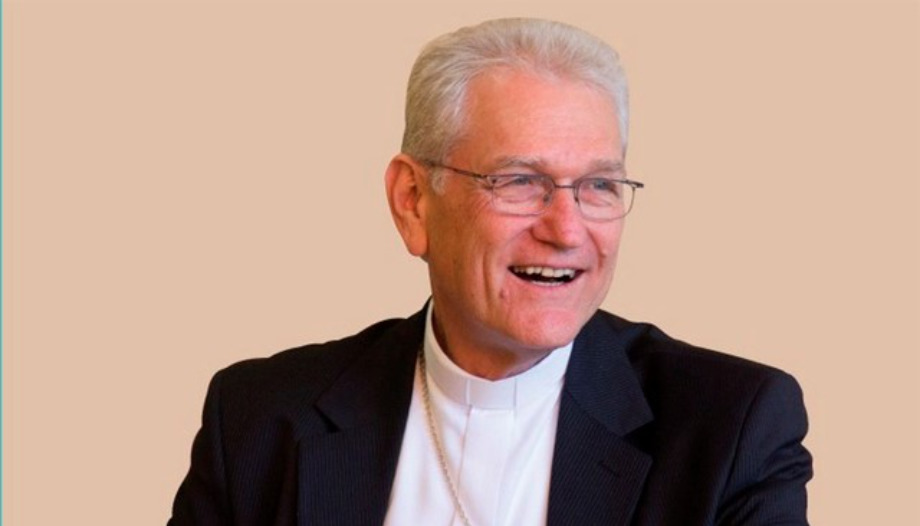Monsignor Steiner explains that this "decision of Pope Francis was a surprise for me and a joy for my community. The future cardinal will receive the pastoral ring and the cardinal's biretta at the consistory on August 27, during which the pontiff will create 21 cardinals. "For me, becoming a cardinal means being able to serve more and better," explains the Archbishop of Manaus, who reveals how, as soon as he heard the news of his appointment, his life did not change at all. "I have continued and continue to serve my diocese as before," he says with great simplicity.
You will be the first Cardinal from the Brazilian Amazon, what will be the burdens and honors of this decision made by the Pope?
My community, all the faithful, are grateful to the Holy Father for having once again demonstrated his closeness and paternity. Certainly, with this decision, Pope Francis has expressed his desire to want a missionary Church perfectly incarnated in the Amazonto be a Samaritan and therefore close to the native peoples. This appointment has the strength, weight and dignity of service.
As Cardinal, how will you intensify your efforts for the Amazon? What objectives will you try to achieve for the good of this region?
In the Amazon, the Church is a Church of particular Churches that, together, dream, pray, celebrate and elaborate their pastoral guidelines. It is truly a synodal Church that always tries to learn from the native peoples, seeking to inculturate itself. Throughout time, this Church has also made an enormous effort to preserve our common home. If I can encourage and strengthen this evangelization, as Pope Francis asks in his post-synodal exhortation Dear AmazoniaI will assist the Bishop of Rome in his ministry.
Do you think there may be a connection between the 2019 Synod on Pan-Amazon and your appointment as cardinal?
This synod is a light to strengthen the road already traveled and to seek new paths. The Episcopal Conference for the Amazon, approved by Pope Francis, points to this ecclesial synodal path. My appointment encourages the particular Churches that are in the Amazon to continue to trust in this path and to realize the dreams of Dear Amazonia.
What is the current situation of the Church in the Amazon?
We are a living, missionary and synodal Church. Our communities are welcoming, supportive, with the participation of men and women as missionary disciples. It is a Church that cares for the formation of the laity and clergy, that relies on religious life embedded in the pastoral and missionary life. It needs help to keep ecclesial life alive because of the distances and the simplicity in which a large number of communities live. In addition, it is also a Church attentive to the needs of the native peoples and people living on the periphery. To this end, it is animated by community leaders, non-ordained ministries and social pastoral care. In short, it is a Church in need and, perhaps for this reason, generous and hopeful.
What are the social and political challenges facing the Amazon?
In my opinion, the main challenges are related to the hermeneutics of Pope Francis: they are social, cultural, environmental and ecclesial challenges. The peripheries of the cities are poor, without infrastructure, without basic sanitation, with a lack of cultural and recreational spaces. The poor, the riverside dwellers, the indigenous people, suffer from the lack of medical services; to this is added violence, which is on the rise. In addition, there are problems related to the underestimation of the different cultures and the devastation of the jungle, the increase in predatory fishing, mining and water pollution: activities that destroy the environment, the home of native peoples.
Then there are the ecclesial challenges. We must strive to be a Church capable of listening to the religious expressions of the communities, of welcoming the religious richness of the rituals of the people, of offering opportunities for commissioning ministries, of perceiving the presence of God in the way of living in harmony with everything and everyone. The challenges are many when the Church seeks to be incarnational and liberating.
What can the international community do to support the Amazon, and what hasn't it done?
The Amazon must live visibly in an autonomous way: it must be respected and not destroyed, cared for and not dominated, cultivated and not exploited. The Amazon must be seen as a complex and harmonious reality; encompassing and unique. The international community could increasingly support the reality, the way of life, the culture, of the native peoples. It is they who care for our common home and can guarantee its future. The international community could contribute to research and support for the conservation of the Amazon. Precisely the international pressure to take better care of the Amazon and its peoples has contributed to the need to address the issue of environmental destruction in the region, but also the need for cultural and religious autonomy of the native peoples.
However, as long as we live in an economic system based on the accumulation of wealth, profit at any price and lack of respect for the dignity of the person and the poor, the Amazon will continue to be destroyed. This has to change. What we have not yet done is to put the economy at the center of the common home, as the etymology of the word says. The Amazon is part of planet Earth, the home of all. It is urgent to awaken humanity to take care of the common home, as Pope Francis affirms in the encyclical Laudato Sì.









